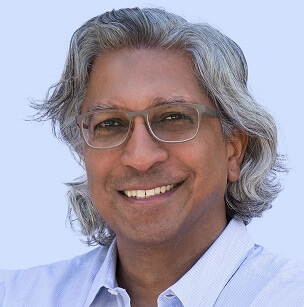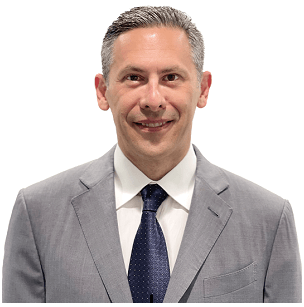Investor caution holds up recovery
After a period of high volatility in the biotech market, public investors are showing an increased appetite for funding younger companies. Meanwhile in the private market, venture capital mega-rounds continue to reflect the availability of capital.
Yet recovery from the plunge that followed the COVID-era market highs is still slow. As Noël Brown, Head of U.S. Biotechnology Investment Banking, puts it: “I can’t seem to shake this nagging feeling that we aren’t out of the woods in biotech yet.”
Investor fear is persistent, agrees Srini Akkaraju, Founder and Managing Partner at Samsara BioCapital, which invests in both public and private biotechs. “In biotech we have unfortunately experienced a long period of time where people are afraid to put money to work.”
This reflects macroeconomic factors and the bursting of the COVID bubble, but also the rush of PIPE (private investment in public equity) deals in early 2024, relatively few of which have delivered on early promise.
The pressure to make up for losses in the dramatic downturn may have contributed to PIPE hype, according to Craig Gordon, who manages a private and a public biotech fund as Founder, CEO and CIO at GordonMD® Global Investments LP. He cautions: “In many regards, investors were using PIPEs as a way to generate immediate, near-term alpha.”
“In biotech we have unfortunately experienced a long period of time where people are afraid to put money to work.”
Srini Akkaraju, Founder and Managing Partner, Samsara BioCapital
True innovation gets rewarded
Nevertheless, both Akkaraju and Gordon agree that investment rewards are available for clear innovation, supported by positive data.
“We are in an unbelievable innovation cycle right now,” states Akkaraju. Over the next two or three decades, he believes, “biotech will be the source of multiple, really important new therapies that will have an absolutely transformative effect on a lot of people’s lives – and that will also come with a lot of value creation.”
He points to epigenetic modulators and mitochondrial biology as areas likely to yield multiple therapies. Establishing more validated surrogate markers for chronic disease will speed that progress.
Gordon says a more favorable approach by the FDA has contributed to recent successes in antibody-drug conjugates and neurology. However, he cautions that this success is not easily replicated.
“We are in an unbelievable innovation cycle right now.”
Srini Akkaraju, Founder and Managing Partner, Samsara BioCapital
Leadership talent is thinly spread
The predominance of relatively inexperienced leadership teams in many biotechs is a source of concern, given the complexity of the tasks they face.
A thinly-spread talent pool makes it harder for investors to find innovation coupled with capable management teams, says Gordon. “There’s been such an explosion in the universe that there’s a struggle to find the right human capital to execute, especially given the regulatory requirement,” he says.
Akkaraju urges younger companies to pull in more experienced managers to minimize the risk of expensive mistakes. “The balance of how many great opportunities there are, versus experienced people to move them forward, is already out of whack,” he says.
“There’s been such an explosion in the universe that there’s a struggle to find the right human capital to execute.”
Craig Gordon, Founder, CEO and CIO, GordonMD® Global Investments LP
Pipeline sequencing is a key skill
Among the dilemmas faced by those management teams is a frequent desire by investors to focus on a single, promising therapy rather than a pipeline.
Akkaraju understands why CEOs want to move programs forward in parallel, but sees part of his role at Samsara as providing investor perspective to companies – pointing out, for example, where the data from a secondary program could be required to fund development of the one being prioritized by the company.
Company leaders need to prioritize their pipelines to get the sequencing right, Gordon believes. His company rarely invests in a company with a single asset: preferring to invest in companies with innovation that can deliver multiple shots on goal.
He suggests that the era of companies going public on the coattails of a trending platform is largely over: “You have to be able to follow through, and show that the story you’ve been telling is being delivered, even if it’s early days.”
Opportunities abound outside the U.S. and China
Looking beyond the U.S., Akkaraju sees most innovation in Europe. He notes China’s productivity in creating new validated drugs, but sees momentum on the Biosecure Act clouding the potential for cross-border partnership.
Gordon agrees: “There are plenty of other regions in the world where we see public and private innovation at a discount to the U.S.” He says U.S. investors are only just realizing the extent of innovation in other parts of the world, such as in Japan and South Korea.
He says U.S. investors are only just realizing the extent of innovation in other parts of the world, in both the public and private spheres: “That makes for exciting market inefficiencies while you’re waiting for the U.S. to recalibrate.”
“There are plenty of other regions in the world where we see public and private innovation at a discount to the U.S.”
Craig Gordon, Founder, CEO and CIO, GordonMD® Global Investments LP


